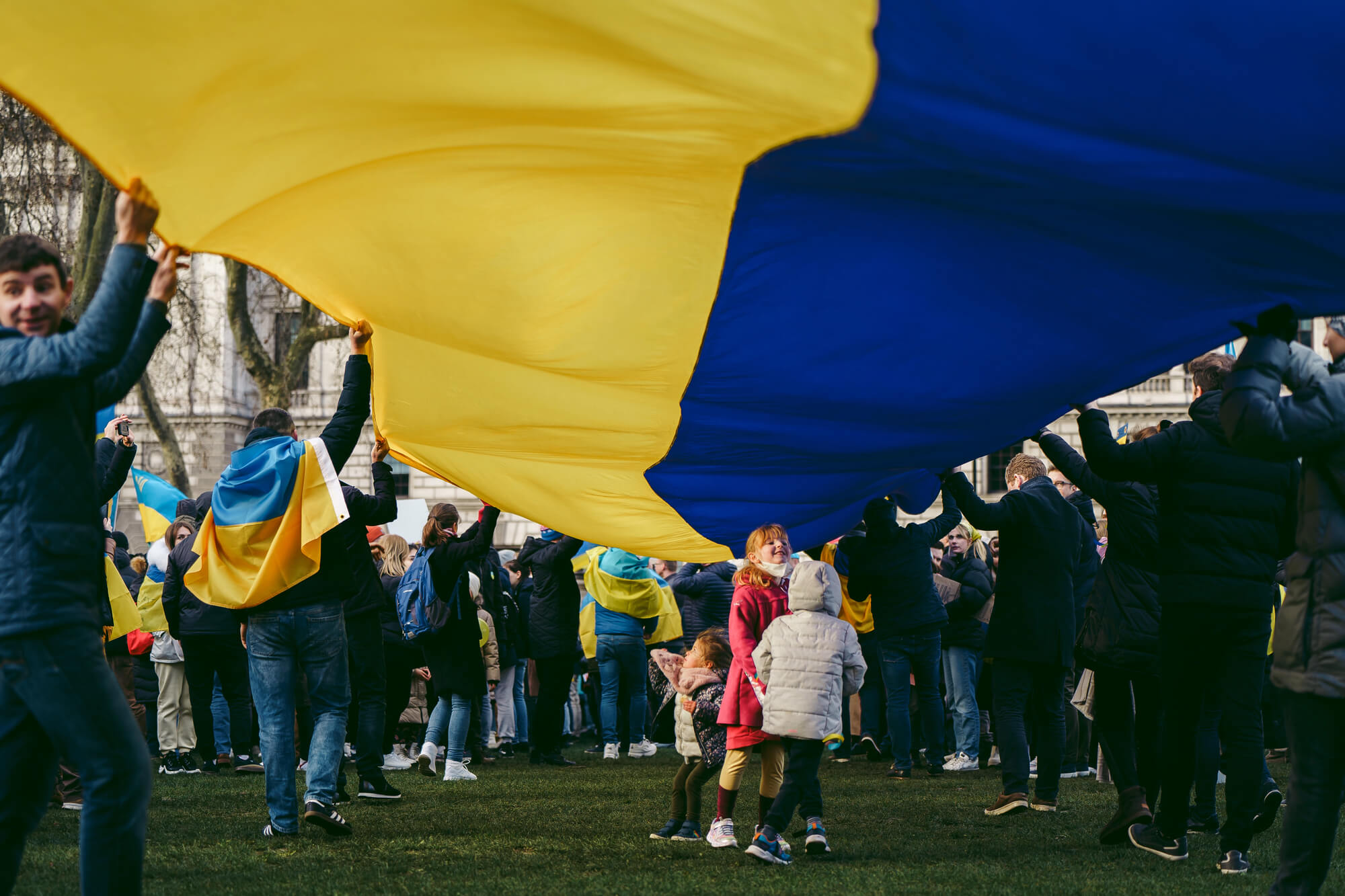“Sputnik V vaccine is the first efficient vaccine with no side effects”; “The West is pressuring over all countries governments not to purchase Sputnik V”; “Western vaccines, including Pfizer/BioNTech are dangerous.” You have just read a short selection of pro-Russian propagandists’ statements about the Russian product.
However, despite such publicity for the Russian vaccine, doors are closed to it in Ukraine – on February 8, the government prohibited the registration of vaccines or any other immunobiological medicinal products for preventing COVID-19, developed or manufactured by the aggressor state.
Yet, several countries around the globe plan on purchasing Sputnik V. Why? What for? And how did Russia manage to convince them?
In short, the reasons for this are political partnerships and disinformation.
Demand and availability
“Everyone’s now lining up for the Russian vaccine!” – such narratives can often be heard from the mouths of OPFL MPs, mainly on the three TV channels that have recently come under the NSDC sanctions. For instance, live on 112-channel in December, Renat Kuzmin said:
“Look, Viktor Medvedchuk goes to Moscow and agrees for the Russian vaccine to be supplied to Ukraine out of turn. And it’s even though every fourth country in the world is in the queue for the vaccine. No, the US Embassy in Ukraine prohibits the Ukrainian state from buying the Russian vaccine.”
Firstly, Ukraine will not buy the Russian vaccine, not because of the US Embassy’s prohibition, but because the vaccine has not ultimately proven its efficacy and safety. Secondly, “every fourth country in the world” does not line up for Sputnik V. Today, as of February, only 13 countries out of 194 in the world – Belarus, India, China and Kazakhstan are among them – have signed supply contracts.
However, the Russian media continue to write regularly about more and more countries getting “interested” in buying their vaccine creating a “demand” for it in such way – at least in the media space. The last person talking about the idea of buying Sputnik V was German politician Reiner Haseloff – the one who also spoke against sanctions against Russia. The Russian media immediately picked up his statement that “there are no ideological reservations against Sputnik V”.
Russian disinformation in the post-Soviet space
Russia is also conducting disinformation campaigns in other Eastern Partnership countries, i.e. Georgia, Moldova, Armenia, Azerbaijan and Belarus. Specifically, conspiracy theories pop up in the Georgian media space, claiming that the Pfizer vaccine changes human DNA. The Russian-controlled media write that the EU misinforms people to slander Sputnik V. In Moldova, Russian media accuse the EU of waging “information warfare” against Sputnik V, allegedly to protect Western pharmaceutical companies.
By the way, representatives of the OPFL party also often try to discredit Western vaccines in Ukraine. Here is what Illya Kiva said about the Pfizer and AstraZeneca vaccines:
“The American Pfizer vaccine that’s so much advertised today and presented as a solution to the problem not only shows its inefficiency, but I’ll be sincere with you, it’s dangerous. Because six of those people who participated in the American vaccine testing programs have already died.”
All of such statements are false. The Pfizer vaccine’s effectiveness is confirmed by studies conducted according to international standards. The Pfizer vaccine and its German partner BioNTech passed Phase III trials, where the vaccine proved that it is 95% effective in preventing symptomatic COVID-19. There were no severe side effects among more than 40,000 adults who took two vaccine doses.
There is no proof that the six people Kiva talks about died after getting the vaccine. Only two received the actual vaccine during the research, while the four others received a placebo. Those receiving the vaccine were over 55 years of age. The first death was from atherosclerosis on the third day after getting the first vaccine dose; the second participant died shortly after suffering a heart attack, 62 days after getting the second dose of the vaccine. Two trial participants who received a placebo died of a stroke and heart attack. The death causes of the two others are unknown. All the deaths were similar to those observed in individuals of these age groups.
Unlike others, the Russian Sputnik V vaccine was registered even before it was to undergo Phase III trials, which is mandatory, according to international standards (subsequently, the Russians abandoned this phase altogether). Technically speaking, it is not even a vaccine, but a candidate vaccine.
In Azerbaijan and Belarus, Russian media’s influence is somewhat weaker because these countries’ media markets have more government control. In Azerbaijan, fake news pieces mainly come from the local newsroom of the Sputnik.az channel, funded by the Russian government. However, the Azerbaijani authorities have already announced plans to purchase 4 million doses of the Chinese CoronaVac vaccine.
Propaganda in Spanish
Since August 2020, the Russian-controlled accounts on Facebook and Twitter have been trying to convince the audience in Spanish-speaking countries that Western vaccines against COVID-19 are unreliable and lead to deaths (the accounts of the Russian channels RT and Sputnik are among the top accounts of Spanish-speaking Twitter and Facebook). In this way, Russia hopes to make the public’s perception of its own Sputnik V vaccine more favourable. Specifically, a story about a Portuguese nurse who allegedly died two days after being vaccinated with the Pfizer vaccine appeared in January on Russia Today’s Facebook page that has 17 million subscribers. However, following an autopsy, the doctors concluded that the vaccine was not the reason for her death.
The number of posts on Russia Today and Sputnik pages, reaching for a Spanish-speaking audience is quite significant. According to CrowdTangle, a Facebook tool for analyzing social media, more than 1,000 posts have appeared on those pages over the past year, with over six million interactions with the word “vacuna” (the Spanish word for “vaccine”).
In Latin America, Russia seems to be the most successful in Mexico. The local government recently signed a supply contract for 24 million doses of the Russian vaccine to be able to vaccinate 12 million people (Mexico’s population is 127 million). The vaccine is to be supplied in several shipments by May.
The Russian information campaign in Mexico is peculiar because the propagandists imparted false information selectively, combining it with the truth. In addition to news agencies, the Russian Embassy in Mexico also got involved in promoting Sputnik V. Another impetus for buying the Russian vaccines was the studies results published by the medical journal The Lancet. The data presented in the article indicate that the Russian vaccine is indeed effective. However, questions remain about the trials’ accuracy. Specifically, the research was carried out only in Moscow, making the sample more homogeneous. Besides, there was no trial protocol for the research participants.
Influencers’ tips
One of the best ways to convince someone of something is to provide friends’ examples. This is the tactic used by the proponents of “the truly effective vaccine” in Ukraine. For instance, Nestor Shufrych spoke about his Russian and foreign friends who had successfully tested the effectiveness of Sputnik V on themselves:
“If you’re to get vaccinated, then definitely with the Russian [vaccine], I’ll be honest with you. I trust it. It effectively protects my friends not only in Moscow but also in Bucharest, Germany, Hungary.”
Only trusting in the vaccine is not enough. The fact that Shufrych’s friends got vaccinated does not mean much – that is an unrepresentative sample. Only in the case of successful completion of all the phases of clinical trials can a vaccine be considered effective.
Recently, Austrian Chancellor Sebastian Kurz also said that he was ready to be vaccinated with Sputnik V. He plans to get vaccinated under conditions that the vaccine is approved in the EU. Kurz has close ties with Russia, and his government opposed European sanctions against Russia after the occupation of Crimea and parts of the Donbas.
The Russians themselves do not trust Sputnik V too much either: 40% of Russian respondents said they were ready to be vaccinated with Sputnik V, that is less than a half.
Attention
The author doesn`t work for, consult to, own shares in or receive funding from any company or organization that would benefit from this article, and have no relevant affiliations



